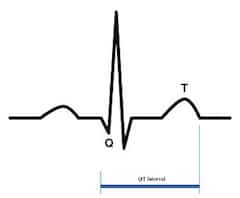ECG Cases 35 – ECG Approach to Takotsubo Syndrome
Takotsubo Syndrome is usually triggered by an emotional or physical stress leading to acute catecholaminergic myocardial stunning. The initial ST elevation phase of Takotsubo Syndrome mimics Occlusion MI, can not be distinguished by patient factors or POCUS findings, and requires immediate angiogram. The subsequent phase of Takotsubo Syndrome has T wave inversion in an apical distribution, which can mimic reperfusion, but often has very deep T wave inversions and a very long QT interval. Takotsubo Syndrome is a retrospective diagnosis of exclusion—with an angiogram ruling out occlusion, a ventriculogram showing apical ballooning, and a follow up echo showing recovery of LV function. Complications of Takotsubo Syndrome include LV failure, apical thrombus, and polymorphic VT from long QT. Jesse McLaren guides us through 10 ECGs to elucidate these important take home points...



